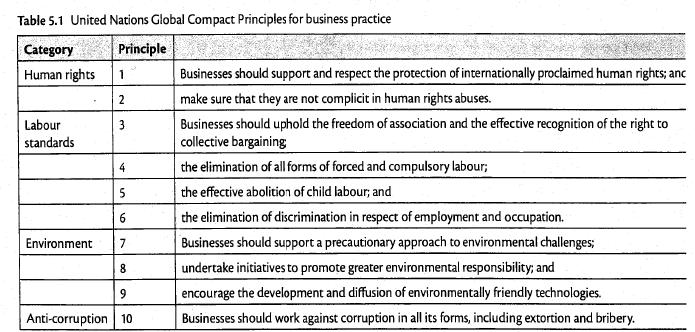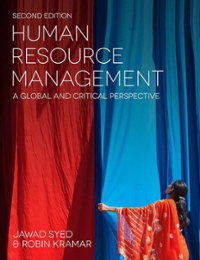The on-line retailer Amazon has recently come under scrutiny for the creation of a 'relentless work environment'
Question:
The on-line retailer Amazon has recently come under scrutiny for the creation of a 'relentless work environment' characterised by excessive working hours, limited opportunity for holidays, poor work-life balance, and extreme demands for performance and output.
Critics argue that Amazon sets impossibly high goals while monitoring and measuring every aspect of an individual's productivity. Current and former Amazon employees spoke of colleagues weeping at their desks and of being pressured by their line managers to spend less time with their families. Examples include a woman who was expected to get back to work the day after her miscarriage, and other employees who were penalised for taking time to care for ailing parents. Those who resist sacrificing their personal lives for their work are quickly discarded.
Alongside these revelations, the founder of Amazon responded by arguing that it was never his intention for management to take such actions and that he advocated a zero tolerance for lack of empathy in the workplace.
Critics have argued that that the type of relentless work environment in Amazon is simply not humane; that it leads to high levels of burnout and pushes people to the margins of the economy.Others argue that the founder of Amazon is free to run his organisation any way he wants, and that people can choose not to work at Amazon in such a 'pressure cooker' environment.
The type of work regime in place at Amazon potentially raises a serious precedent. It may be the case that Amazon is just the leading edge of a widespread phenomenon whereby employers and management see no need to treat workers as full human beings with lives outside of work.
We may be moving towards a world of work that treats workers purely as means to an end and where even committed, engaged, and competent employees are viewed as easily disposable.
Adapted from: Horsey, D., Amazon's brutal workplace is an indicator of an inhumane economy. Los Angeles Times, August 18, 2015. Available at: http://www.latimes.com/opinion/topoftheticket/la-na-tt-amazon-brutal-workplace20150818-story.html.
Questions
1 What are the HRM ethical issues relevant to the case?
2 How would each of the four main ethical frameworks presented in this chapter view the situation in the case study?
3 Consider the treatment of workers in this case against the background of Table 5.2 in this chapter. In what ways can the treatment of workers in the case be considered a violation of socially responsible human resources practice?

Step by Step Answer:

Human Resource Management A Global And Critical Perspective
ISBN: 9781137521620
2nd Edition
Authors: Jawad Syed, J; Kramar Syed, Robin Kramar





